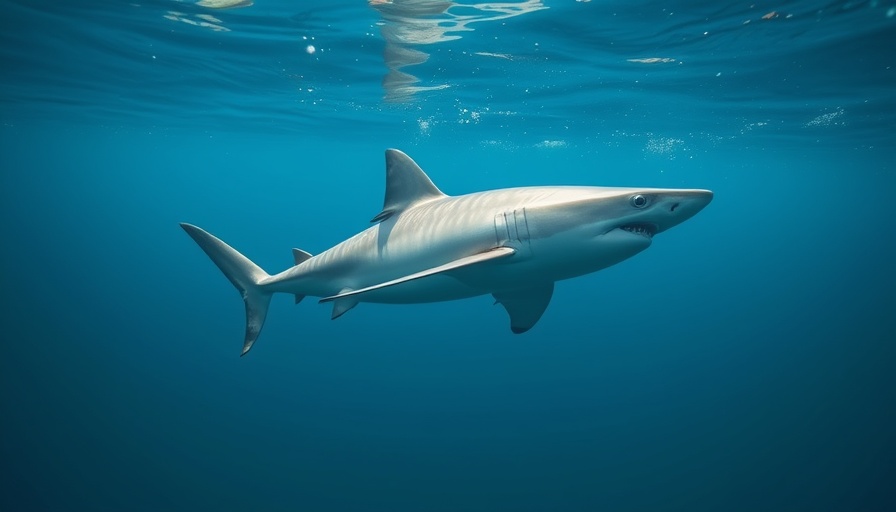
Shifting Patterns: Where Great White Sharks Are Heading
The current data reveals a striking trend: great white sharks are increasingly making their presence felt along the northern coast of New England, particularly in Maine. Historically considered rare in these waters, the increased sightings signal a noticeable shift in the species' range. This change is likely due to the rising numbers of seals, their primary food source, which have seen their populations flourish in New England regions.
Understanding the Numbers: A Closer Look at Shark Sightings
Data from the Maine Department of Marine Resources highlights that there were 93 great white sharks identified off the state from 2020 to 2024. In 2024 alone, 19 unique sharks were recorded, with sightings occurring on 47 different days. This growing frequency not only indicates a change in the sharks' behavior but also represents a unique opportunity for local fishermen and beachgoers to coexist with these magnificent creatures.
Local Myths: Are Sharks a Threat to Us?
Despite the rising numbers, many remain concerned about shark attacks. However, it's essential to note that Maine has only recorded two unprovoked shark attacks since 1837, with just one resulting in a fatality since 2020. Experts maintain that the risk remains extremely low for beach enthusiasts and fishermen. In fact, the presence of sharks can signify a healthy marine ecosystem.
Surprising Species: The Shark Community Off Maine's Coast
Maine's waters host more than just great white sharks. At least seven additional species frequent the region, such as basking sharks, blue sharks, and shortfin mako sharks. Most of these species pose little to no danger to humans, debunking common misconceptions about the prevalence of aggressive shark behavior in the area.
If You Encounter a Shark: Tips for Safety
Beachgoers may wonder how to stay safe when swimming in shark-inhabited waters. Experts advise remaining calm and avoiding sudden movements if a shark is spotted. Additionally, swimming in groups and at designated times, such as early morning or late afternoon, can reduce the risk of an encounter. Awareness and education are key components in ensuring the safety of both humans and sharks.
The Road Ahead: What Does This Mean for Local Communities?
The increase in shark sightings may lead to significant implications for Maine’s local culture, particularly its tourism industry. As awareness grows and public interest piques, local tourism could benefit from eco-tours focusing on marine life. Engaging the community in conversations about this natural phenomenon can create a more informed and safer environment for both the sharks and locals.
As they adapt to their northern journey, great white sharks are providing us with valuable insights into our own coastal changes. By learning to coexist with these predators, we can appreciate the remarkable balance of our marine ecosystems.
To learn more about educational opportunities and marine safety in New England waters, consider joining local marine research groups or exploring community seminars.
 Add Row
Add Row  Add
Add 




Write A Comment